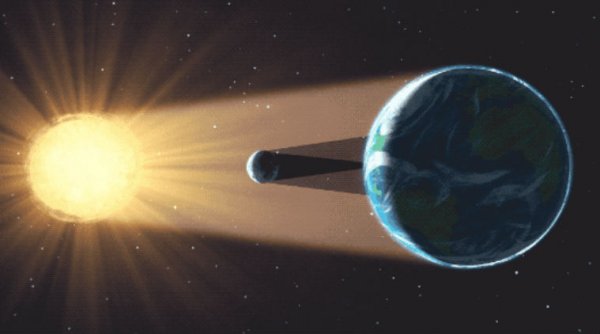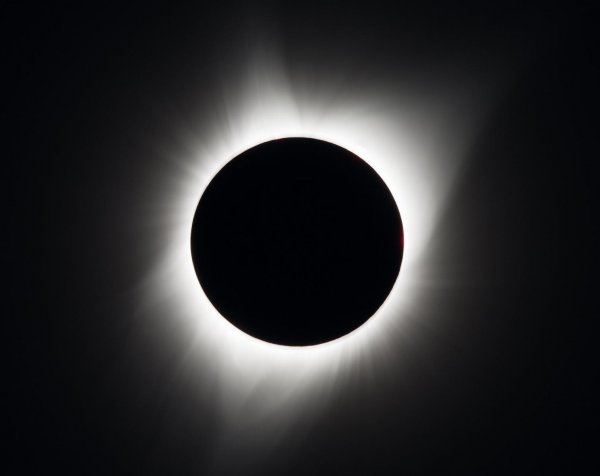prasad1
Active member
Full solar eclipse: Before science, this is how cultures across the world viewed this natural phenomenon

North America is about to witness a remarkable astronomical event on Monday in the form of a complete solar eclipse. While eclipses are not that rare, this one is special as it would be occurring across the entire United States. In contemporary times modern science and technology has managed to decode the precise reasoning behind how an eclipse happens to take place.
Back in the old days, however, lunar and solar eclipses were often associated with supernatural phenomenon and as good and bad omens. Further, a diverse collection of work by mythologists has shown that the connections between eclipse and mythological figures like demons existed across races and cultures and are to date, commonly followed by mankind across the world.
The sun and the moon have for centuries been the theme of myths, folklore and literature. The rays of the sun being beneficial to the human mind and body was realised by mankind since the dawn of human history and was often referred to as the astronomical entity that inspires life. It is but logical to assume that the positive attributes of the sun would be shut out on the occasion of a mishappening or as a prelude to something bad that is about to happen. As explained by mythologist Biren Bonnerjea in his work, “a large majority of people believed that eclipses were caused by the luminaries being threatened by some danger to their existence, and that this danger commonly took the form either of a demon or or a ferocious beast.”
While the nature of the evil associated with eclipses has varied across cultures, the existence of it is uniform. Also widely prevalent is the myth of the sun and moon being related to each other as either husband-wife or brother-sister, whose relationship is at stake on the occasion of an eclipse. Here are a primitive beliefs associated with eclipses across the world, some of them prevail even today as part of cultural traditions.
Asia
Among Hindus, the most common myth associated with eclipses is that of the sun and the moon being consumed by the demons, Rahu and Ketu. While Rahu is said to devour the sun, Ketu is believed to be the destroyer of the moon. Hindu belief also notes that poison drips down from the sky on the occasion of an eclipse and that it is also a period of ceremonial pollution which necessitates taking a ritual bath.
Among Hindus of Southern India, a common belief notes that eclipses are the cause behind the birth of a deformed child. The South Indian Toda tribe have for long believed that during a solar eclipse they should abstain from food.
Among the Chinese, the myth goes that a solar eclipse ushers in a threatening future. Accordingly, they go about making noises so as to repel away the demon causing the eclipse. A similar practise is observed among the Filipinos as well.
North America
Among the Tslascaltec tribes of America, the sun and the moon are regarded as husband-wife and an eclipse a result of a quarrel between them. Among the Kwakiutl tribe on the other hand, eclipses were believed to be the result of being swallowed by a demon. As a ritual to repel the demon therefore, the tribe would burn something that could give out a bad smell.
Among the Choctaws of Southeastern United States, the common belief is that an eclipse occurred because a black squirrel tried to eat up the sun at intervals. Consequently, each time an eclipse would occur they would make a lot of noise and beat pans, the rationale being to scare off the squirrel. A similar myth existed among the Creek Indians who thought an eclipse occurred because a toad or a pig attempted to devour the sun or moon.
Europe
Among the British, the traditional practice was to beat kettles and pans during eclipses with the intention of driving away the demon that had caused it. In some German provinces on the other hand, an eclipse was believed to be the time when poison fell from heaven and hence vessels carrying water had to be kept covered as a precaution. Among the Bavarians of Germany, drinking of water was prohibited owing to the myth of it being poisoned during an eclipse.
South America
The primitive tribes of Mexico believed that an eclipse occurred when a jaguar ate up the sun. Among Mexican women, it was believed that children born during an eclipse would turn into mice. The belief persisted in Mexico as late as the 19th century.
The Cuna Indians of Panama on the other hand, believed that an eclipse was caused by a demon which took the form of half dog and half woman. Legend has it that the tribe would shoot out miniature arrows in their attempt to repel it.
http://indianexpress.com/article/re...world-viewed-this-natural-phenomenon-4806744/
The shocking misinformation and deliberate misunderstanding of a natural astronomical phenomenon even among the so-called "educated" person is galling. The misconceptions and blind faith is unfortunate.
There are multiple threads about the effect of the eclipse on religious events on this site.

North America is about to witness a remarkable astronomical event on Monday in the form of a complete solar eclipse. While eclipses are not that rare, this one is special as it would be occurring across the entire United States. In contemporary times modern science and technology has managed to decode the precise reasoning behind how an eclipse happens to take place.
Back in the old days, however, lunar and solar eclipses were often associated with supernatural phenomenon and as good and bad omens. Further, a diverse collection of work by mythologists has shown that the connections between eclipse and mythological figures like demons existed across races and cultures and are to date, commonly followed by mankind across the world.
The sun and the moon have for centuries been the theme of myths, folklore and literature. The rays of the sun being beneficial to the human mind and body was realised by mankind since the dawn of human history and was often referred to as the astronomical entity that inspires life. It is but logical to assume that the positive attributes of the sun would be shut out on the occasion of a mishappening or as a prelude to something bad that is about to happen. As explained by mythologist Biren Bonnerjea in his work, “a large majority of people believed that eclipses were caused by the luminaries being threatened by some danger to their existence, and that this danger commonly took the form either of a demon or or a ferocious beast.”
While the nature of the evil associated with eclipses has varied across cultures, the existence of it is uniform. Also widely prevalent is the myth of the sun and moon being related to each other as either husband-wife or brother-sister, whose relationship is at stake on the occasion of an eclipse. Here are a primitive beliefs associated with eclipses across the world, some of them prevail even today as part of cultural traditions.
Asia
Among Hindus, the most common myth associated with eclipses is that of the sun and the moon being consumed by the demons, Rahu and Ketu. While Rahu is said to devour the sun, Ketu is believed to be the destroyer of the moon. Hindu belief also notes that poison drips down from the sky on the occasion of an eclipse and that it is also a period of ceremonial pollution which necessitates taking a ritual bath.
Among Hindus of Southern India, a common belief notes that eclipses are the cause behind the birth of a deformed child. The South Indian Toda tribe have for long believed that during a solar eclipse they should abstain from food.
Among the Chinese, the myth goes that a solar eclipse ushers in a threatening future. Accordingly, they go about making noises so as to repel away the demon causing the eclipse. A similar practise is observed among the Filipinos as well.
North America
Among the Tslascaltec tribes of America, the sun and the moon are regarded as husband-wife and an eclipse a result of a quarrel between them. Among the Kwakiutl tribe on the other hand, eclipses were believed to be the result of being swallowed by a demon. As a ritual to repel the demon therefore, the tribe would burn something that could give out a bad smell.
Among the Choctaws of Southeastern United States, the common belief is that an eclipse occurred because a black squirrel tried to eat up the sun at intervals. Consequently, each time an eclipse would occur they would make a lot of noise and beat pans, the rationale being to scare off the squirrel. A similar myth existed among the Creek Indians who thought an eclipse occurred because a toad or a pig attempted to devour the sun or moon.
Europe
Among the British, the traditional practice was to beat kettles and pans during eclipses with the intention of driving away the demon that had caused it. In some German provinces on the other hand, an eclipse was believed to be the time when poison fell from heaven and hence vessels carrying water had to be kept covered as a precaution. Among the Bavarians of Germany, drinking of water was prohibited owing to the myth of it being poisoned during an eclipse.
South America
The primitive tribes of Mexico believed that an eclipse occurred when a jaguar ate up the sun. Among Mexican women, it was believed that children born during an eclipse would turn into mice. The belief persisted in Mexico as late as the 19th century.
The Cuna Indians of Panama on the other hand, believed that an eclipse was caused by a demon which took the form of half dog and half woman. Legend has it that the tribe would shoot out miniature arrows in their attempt to repel it.
http://indianexpress.com/article/re...world-viewed-this-natural-phenomenon-4806744/
The shocking misinformation and deliberate misunderstanding of a natural astronomical phenomenon even among the so-called "educated" person is galling. The misconceptions and blind faith is unfortunate.
There are multiple threads about the effect of the eclipse on religious events on this site.
Last edited:


